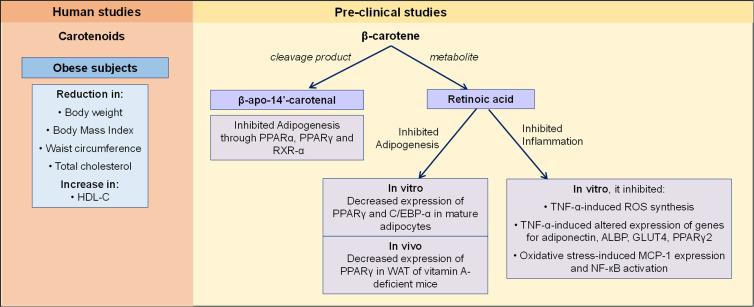Fig. 1.
The effects of carotenoids and β-carotene on obesity. In human studies, carotenoids were reported to improve weight, body composition and HDL-C in obese subjects. In pre-clinical studies, β-carotene's cleavage product, β-apo-14′-carotenal inhibited adipogenesis through suppressing PPARα, PPARγ and RXR-α activation. The metabolite of β-carotene, retinoic acid was reported to inhibit adipogenesis and inflammation. These effects were seen in in vitro and in vivo studies. ALBP, adipocyte lipid-binding protein; C/EBP-α, CCAAT enhancer binding proteins; GLUT4, glucose transporter-4; HDL-C, high-density lipoprotein-cholesterol; MCP-1, macrophage chemoattractant protein-1; NF- кB, nuclear factor-кB; PPARα, peroxisome proliferator-activated receptor-α; PPARγ, peroxisome proliferator-activated receptor-γ; ROS, reactive oxygen species; RXR-α, retinoid X receptor-α; TNF-α, tumor necrosis factor-α; WAT, white adipose tissue.

